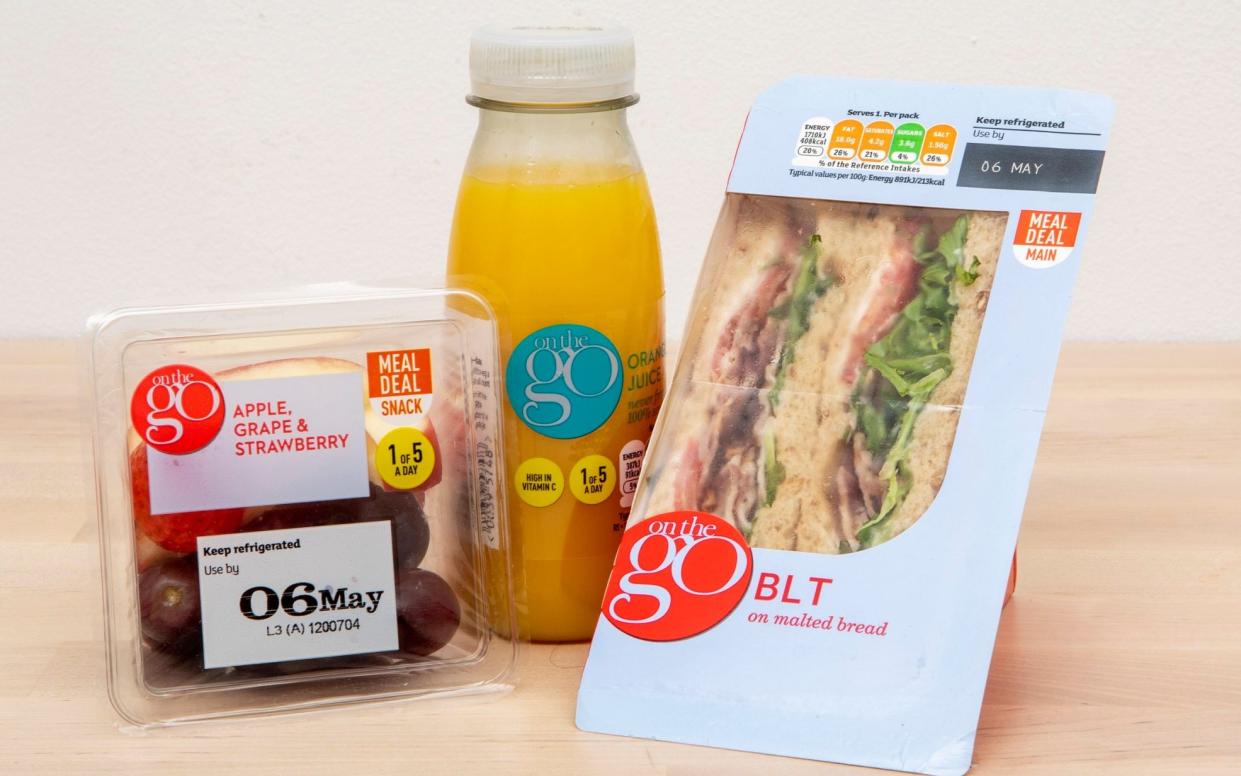Supermarket meal deals 'unhealthy as a Big Mac and fries'

Cheap supermarket meal deals could be as unhealthy an option as a large Big Mac and fries, a new study has found.
Researchers at the University of Birmingham found that budget meal deals, which cost around £3.50, often contain well over the 600 calories recommended for people to consume at lunchtime.
The deals, which are hugely popular at Tesco, Sainsbury's and Boots, include a main, snack and drink, and vary from sandwiches and baguettes to salads and pasta.
According to the study, one in five combinations sold at major supermarkets and high street chains exceed the calorie limit, with the average lunch containing 10 per cent more than advised.
The most calorific meal deal clocked in at 1,329 calories, more than a large Big Mac and fries, and 222 per cent of the recommended guidelines, the research published in the Journal of Marketing Management found.
The worst offenders for packing away the calories were triple sandwiches with an average of 657 calories and baguettes with an average of 528. The worst snacks were crisps and chocolate bars which had 181 and 190 calories respectively.
The average salad came in at 399 calories, more than a McChicken Sandwich and around the same number of calories as a Greggs steak bake.
Those looking for a healthy lunch may be surprised to learn that the most calorific drinks were smoothies with an average of 143 calories followed by energy drinks with around 127.
In 2016, the government launched its ‘One You’ campaign to try and tackle obesity and make the public more aware of their health and diet.
One of the key messages in this campaign was 400-600-600 guidance, which recommended that adults consume 400 calories for breakfast, and 600 each for lunch and dinner, with two 200-calorie snacks.
Dr Sheena Leek, senior lecturer in marketing at the University of Birmingham who led the study said monitoring calories from meal deals was important for those who struggled to squeeze lunch into the working day.
“For many people who work shifts, or your average nine to five, finding time to prep lunch can be difficult, especially for those with childcare responsibilities. For this reason, the meal deal, offered in shops and supermarkets all over the country, is a quick, easy, and economical option.
“However, our research has shown that many of these meal deal combinations are well exceeding the suggested government calorie limit for lunches, and in some cases taking up over half recommended daily allowance for a female adult.
"Most people won’t be aware of how many calories are in their lunch when they only have 30 minutes or so to grab something to eat and get back to the office or on the road.”
The paper suggests that to bring lunches back in line with the 600 calorie guidance, the government could encourage retailers to use the meal deal promotion for combinations that are healthier.
Researchers also suggested that the government could make this a legal requirement but acknowledged this could be detrimental to retailers.
A Tesco meal deal costs £3.40 while at Sainsbury's similar options are 3.50 and at Boots the deal costs £3.99. The study noted that the majority of people purchase a lunch meal deal to save money and that it was important consumers were not penalised for maintaining a healthier choice.
Dr Leek added: “The government has long spoken about combating obesity and needing people to eat healthier, exercise more and for the nation to ‘slim down’ to combat weight-related health issues, which may require NHS resources later in life.
"However, if one of the most common and attractive lunch options for working people is regularly breaking government guidance, achieving this aim is going to be incredibly hard.”
“Companies could take some quick and easy steps to reduce the calories in their meal deals, such as removing the worst offending products from the offer, reformulating recipes, or resizing products.
"The Government could also take steps to address this issue either through renewed guidance and collaboration with shops or through legislation.
“Currently, and ultimately it is up to the individual to decide what to buy for their lunch. But if the most attractively priced options are the unhealthiest, does that really make it a fair choice?”


